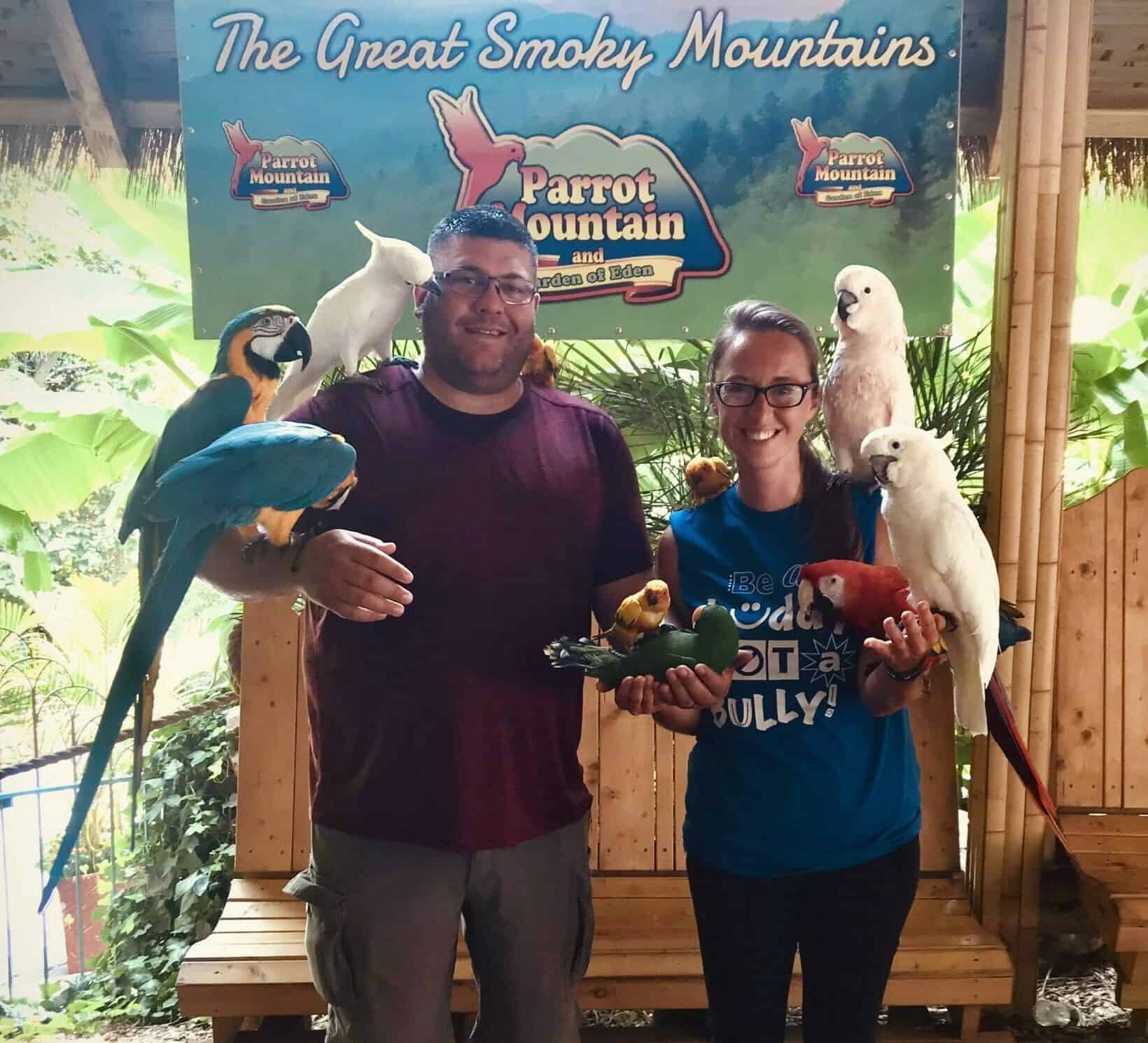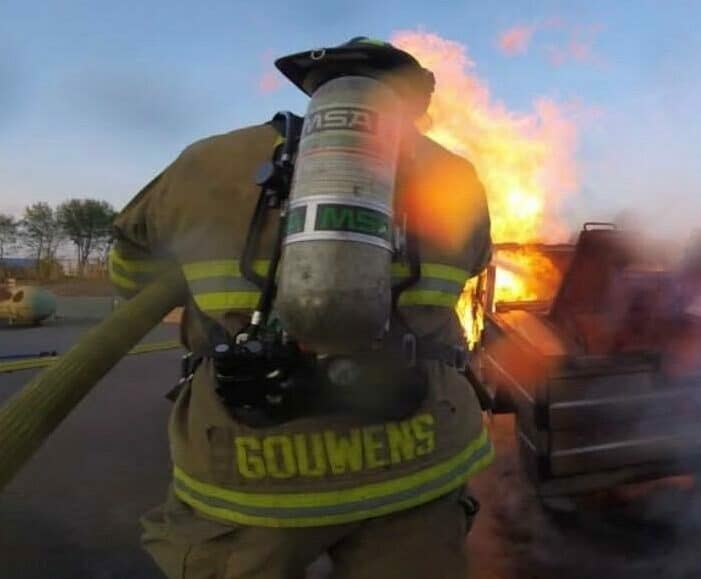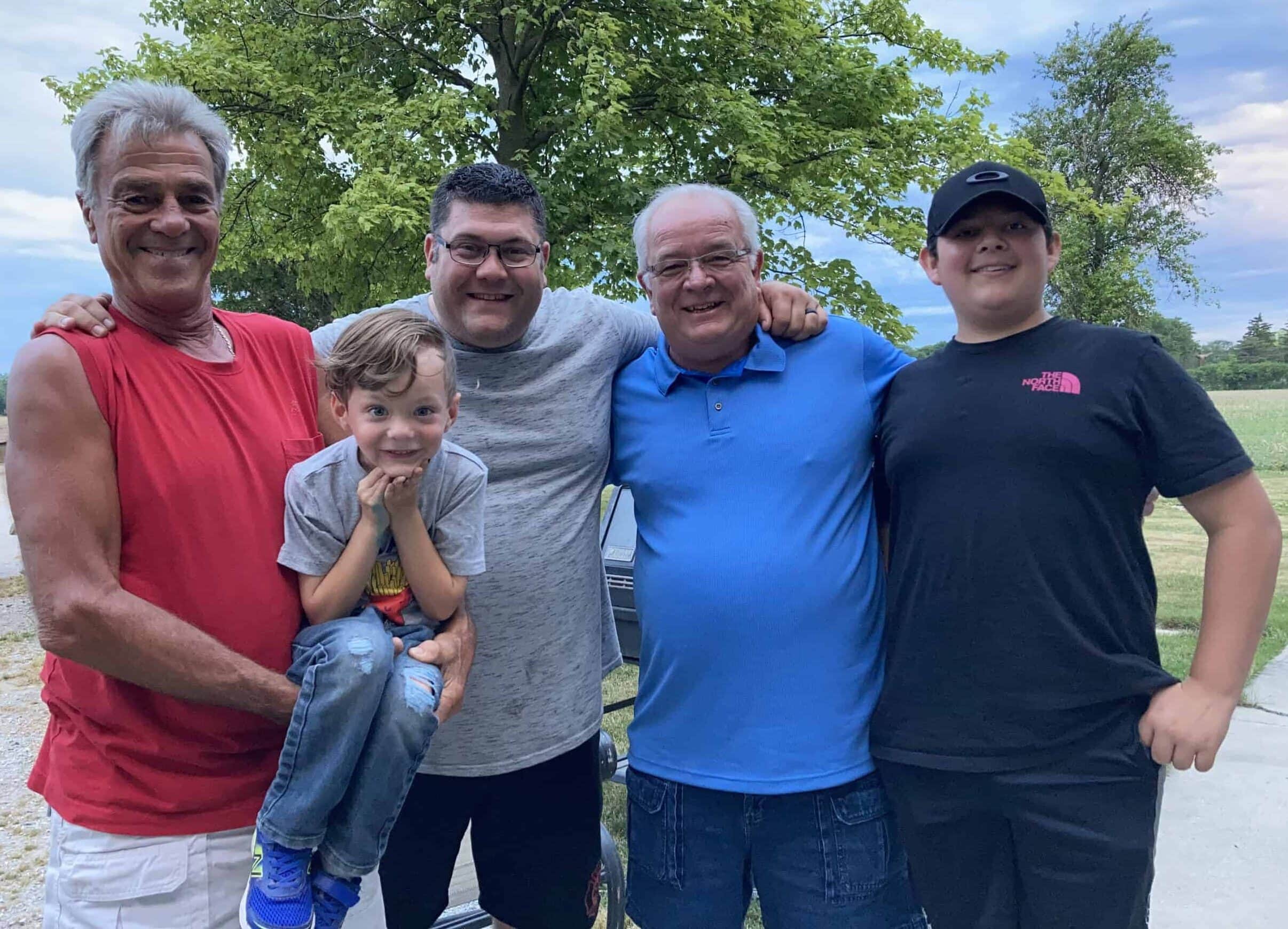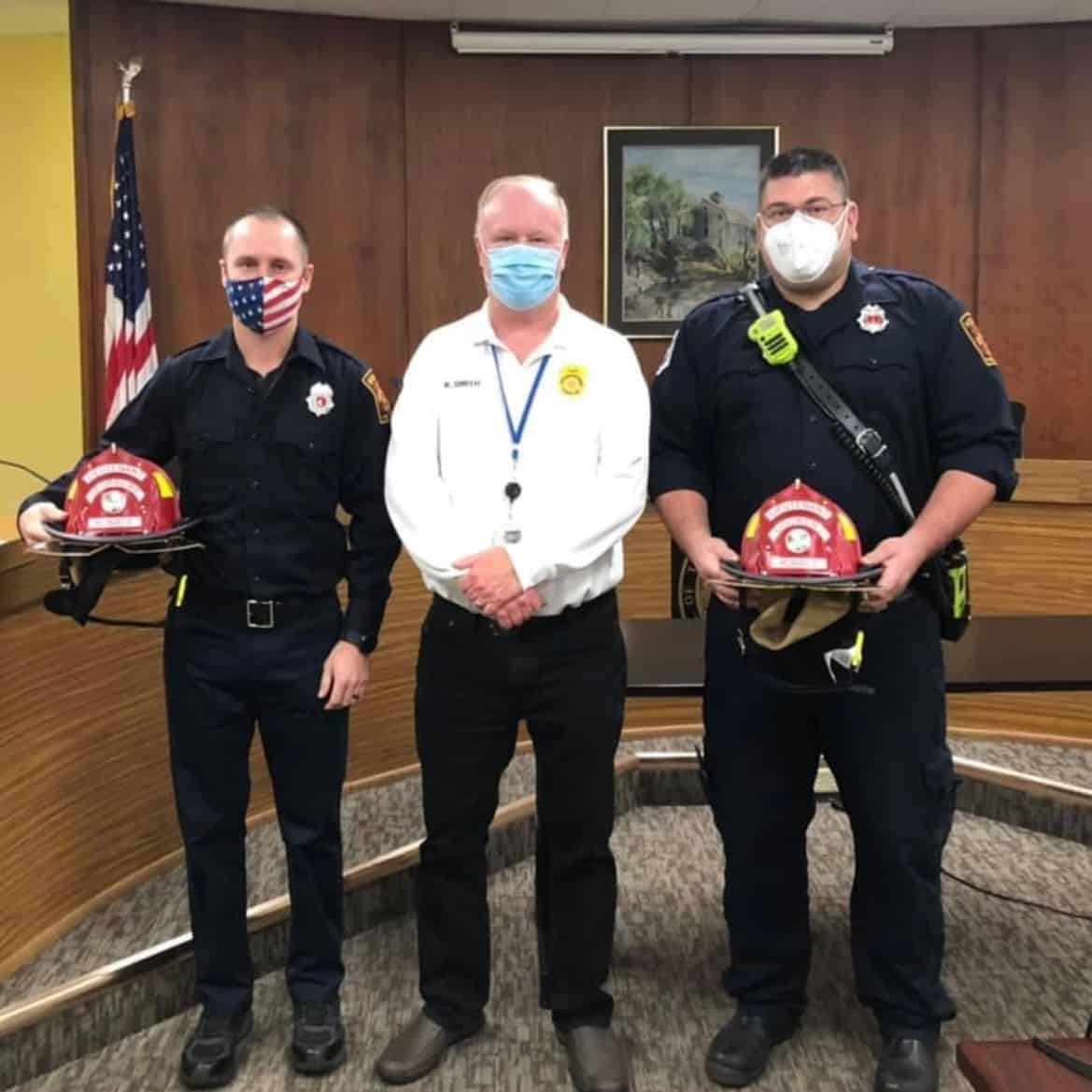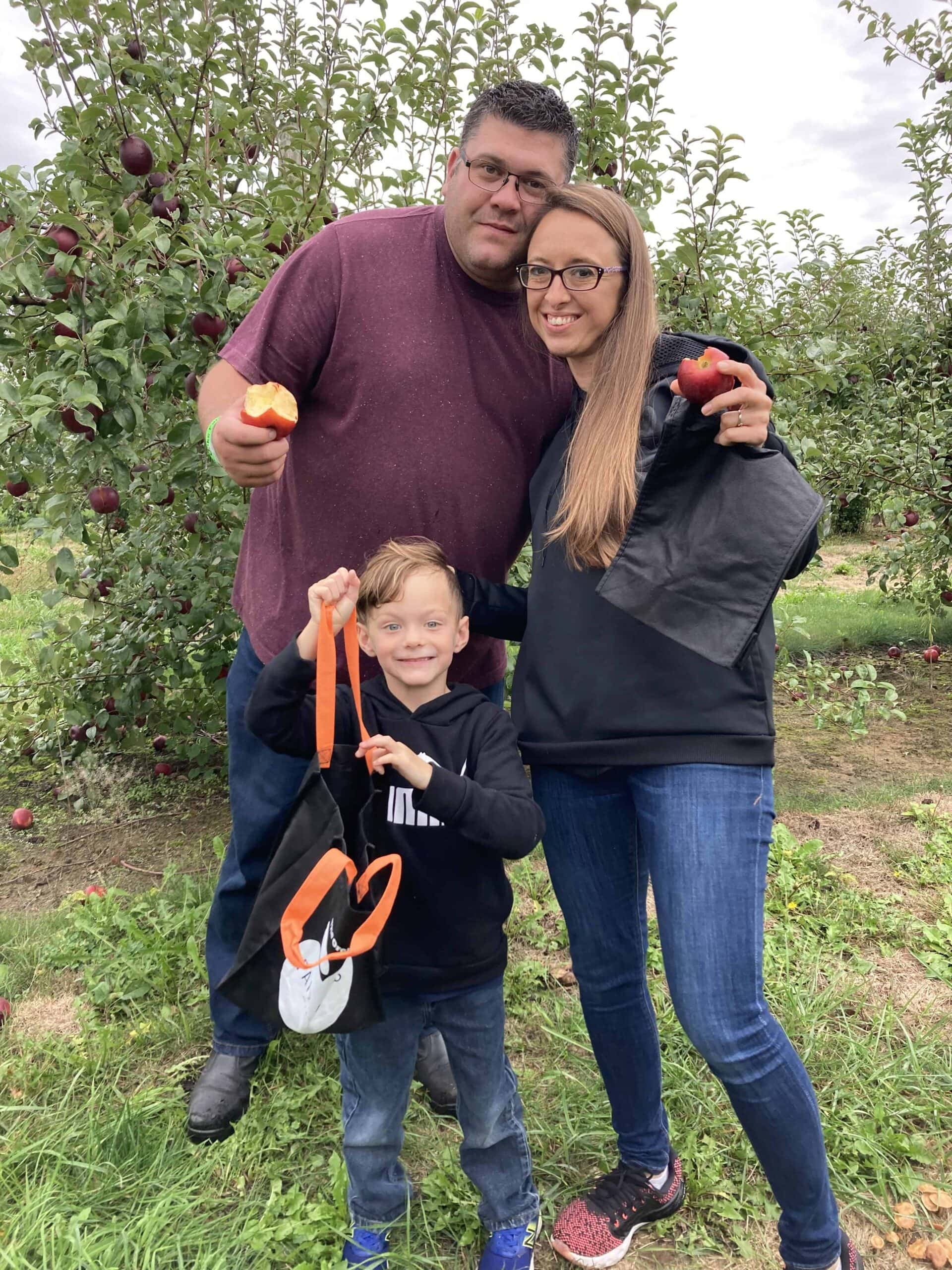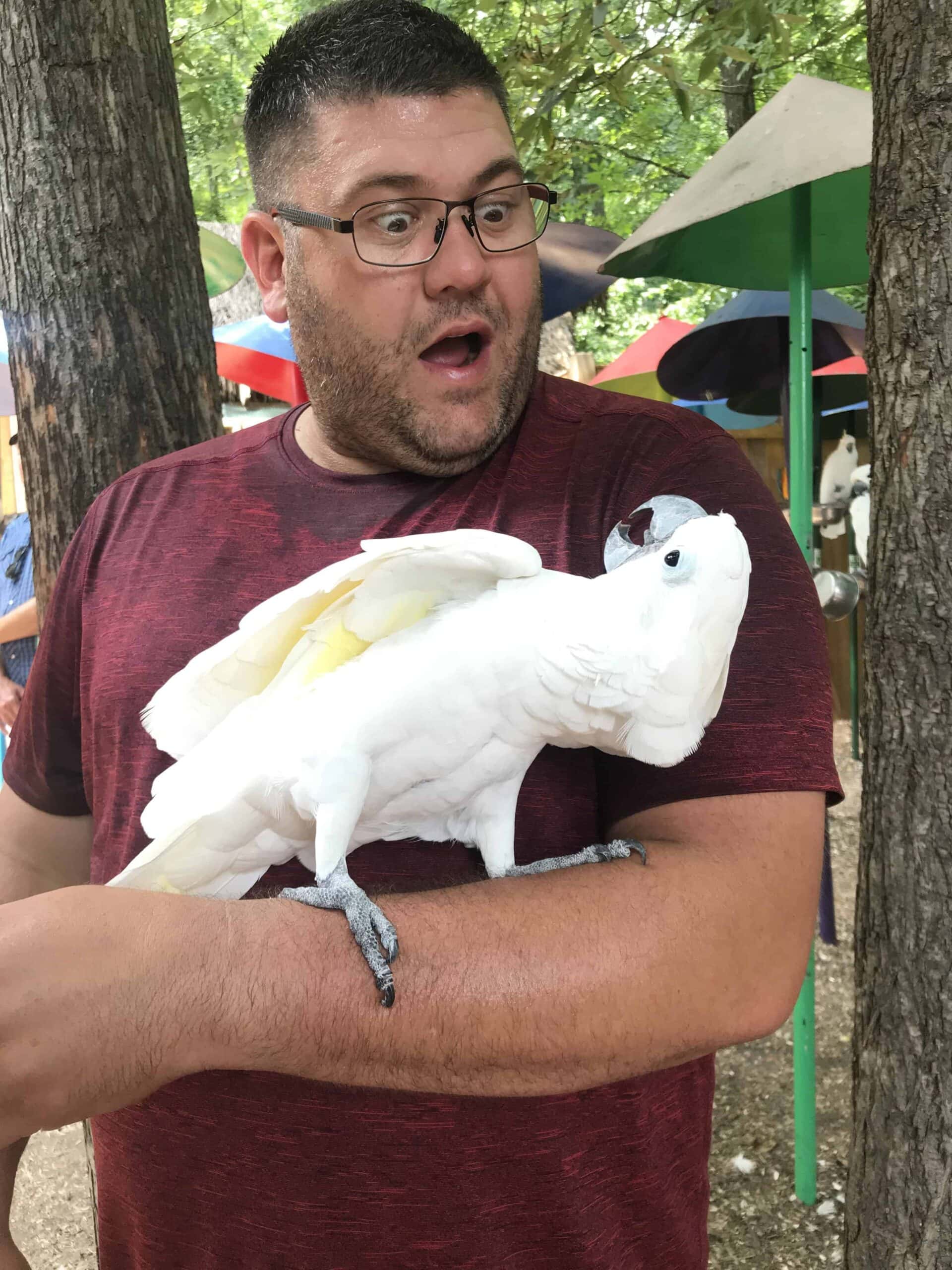BEING HUMAN: Lt. STEVE GOUWENS HOBART FIRE DEPARTMENT
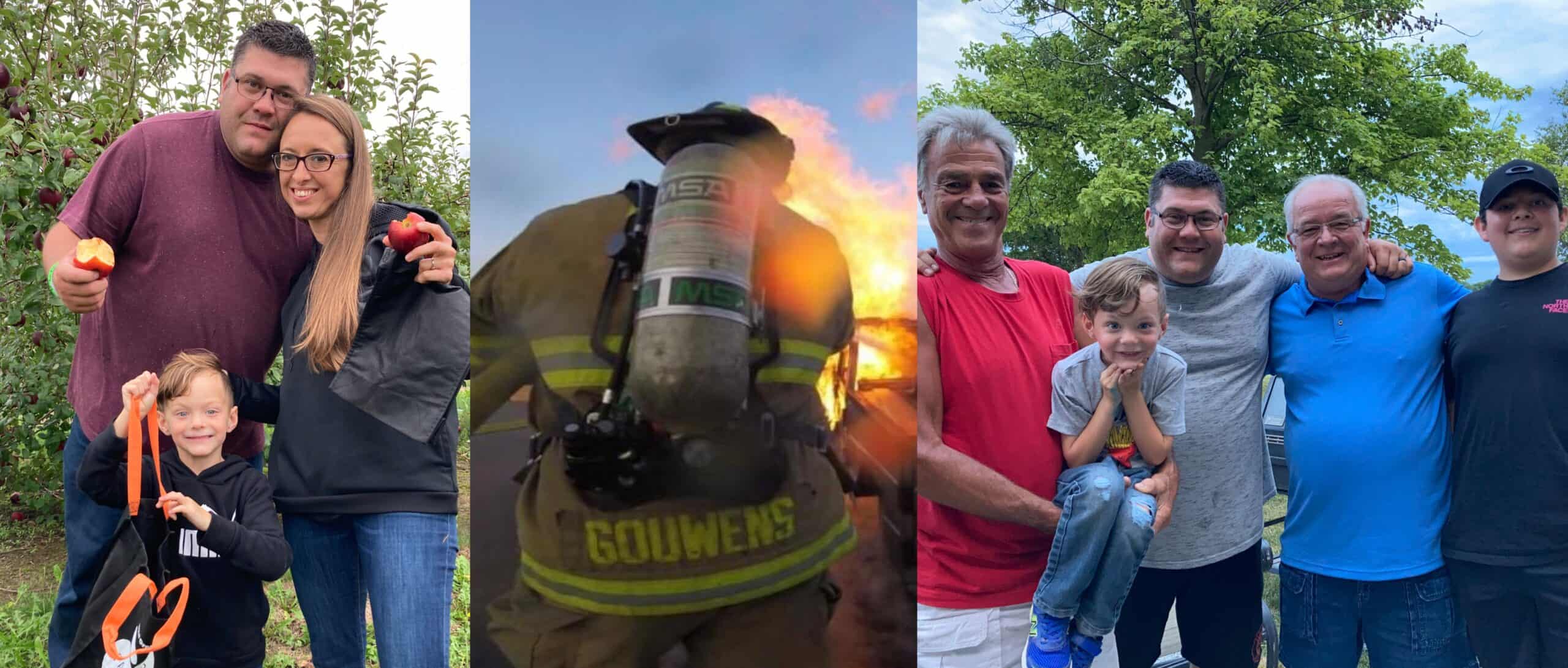
“Being Human” is based on true stories told from our local first responders. All victims and those who wish to remain unnamed have been altered for privacy purposes.
LOCAL 219: Hi Steve, tell me a little bit about yourself. You work for the Hobart Fire Department?
Steve Gouwens: Yes, I’m a Lieutenant there. A Paramedic Firefighter, and just recently got promoted to Lieutenant a year and a half ago.
L219: Congratulations.
SG: Thank you. A little bit about my journey, I started in healthcare. I was a receptionist in the ER at Saint Margaret’s in Hammond. I bounced around from job to job.
I didn’t know what I was going to do, and my mom was an HR person at Saint Margaret’s. She said there was an opening in the ER and that I should apply, and I’m like, “I don’t want to do some boring W2 job.” I started that and then fell in love with medicine.
I loved the emergency room, the hustle and bustle, and the craziness. I was only taking people’s names and kind of helping them to the back, but still getting a little flavor of it. I was thinking either paramedic or nursing because both of those kind of interested me, then somebody suggested I go to EMT school first.
L219: To get a taste of it.
SG: Yeah, so I hooked up with Superior ambulance; they trained me, and I head over heels fell in love with emergency care.
L219: What did you fall in love with the most?
SG: The constant ‘go.’ I mean there is something to be said about the ICU nurses that are with patients day in and day out. Even hospice nurses, hats off to them, because they’re there the whole time, but there’s something about, “I have 20 minutes to make a difference.”
L219: The rush.
SG: Yeah, it’s for an adrenaline junkie kind of. Through EMT school I started medic school right away. I became a paramedic through Superior and then I went to critical care school, which is a stage above medic.
L219: So you enjoyed the science behind it.
SG: Yes. Totally nerded out. I didn’t take my job as seriously. I was 26 or 27. When I learned medicine the first time I was kind of like, “Just pass the test,” and then I encountered one really bad call that stuck with me.
There was a guy with chest pain and he said he just had open heart surgery that Tuesday and this was a Friday. So he had just had open heart surgery. His pain felt exactly the way it did before he went in. He was put on the monitor and there were what we call ‘tombstones.’ It’s a certain EKG rhythm, and it showed he was having a heart attack. Decisions made in seconds turned out to be incorrect.
In reality his chest pain went away, but simultaneously dropped his heart rate, and his blood pressure, then he coded. Report was called in to Saint Catherine’s at first and then we came crashing in the door two minutes later doing CPR on this guy.
He had Steri-strips still on his chest so doing CPR popped everything opened. He was bleeding everywhere, and it just started off as a chest pain call. The man didn’t make it.
I called my boss and I said, “I quit. It’s two in the morning and I quit.” She talked me out of it. She sat me down and had a really, real conversation with me. She said, “You have two options: you can walk away or you can learn from this…”
L219: And let it drive you forward.
SG: Yeah. I share that story with every single student that I have. I’m also a teacher, and I’ve been a paramedic for 15 years now. So, this was a decade and a half ago.
L219: I can’t help but consider how many people you have helped since then?
SG: You sound like my wife. She’s said, “Over the last 15 years how many students have you had, how many other patients have you had?” I know cardiology backwards and forwards, more than I should, and I continue to push myself to learn.
I don’t ever want something to catch me off guard that I could have prevented. I do look at it now in a positive light, and know how many other chest pain calls I have caught and helped, and they’re better off because I actually took my job seriously.
L219: …you’ll never have to carry the burden I carry.”
SG: Right, because you’re gonna watch people die, but I try to prevent that.
L219: In terms of students, and for the younger generation, looking into EMT school, law enforcement, or firefighting, what advice would you give them to prepare for this line of work? What should they consider if they want to explore these fields?
SG:
“The most successful things for me are finding things other than your career to give you life. For me, it’s faith. For me, it’s family. God sent me the perfect woman. She is my rock. She’s my support.”
A lot of paramedics, wind up with ER nurses…
L219: Because they can relate.
SG: But she is a schoolteacher, and she did real estate. She doesn’t really know the field. She knows it, but she doesn’t experience it, and it’s really nice to get support from her in that.
I have amazing friends. I have an amazing family. I would say the best thing anyone can do whether they’re going police, military, fire, paramedic, doesn’t matter: find a support structure. Something that is constant for you. Without that I’ve seen guys completely snap.
We have horrible coping techniques. We stay up way too late. We drink way too much. We just talked about sugar and carbs, smoking.
L219: They’re easy fixes.
SG: Yes, and it’s very common in my line of work, that on off days, you just get drunk all day. That used to be me. It would be 7am, and I’m drinking.
We just adopted my son, five years ago and that changed our faith. It made our faith just come alive, because we were always like, “Oh we’re Christian, we go to church. Yeah, we’re fine, but five years ago is when we actually relied on God for the first time, and that changed a lot. We started uncovering a lot of who we are. We both deal with depression and anxiety. I think everyone does.
L219: Some just hide it better than others.
SG: Yeah, some people cope with it and some people choose to find, horrible, coping techniques. So that’s been a big change. Now, I’m looking at everything I do with my eyes, with my mind and with my actions, as it’s either God serving or it’s not. I would also encourage anyone [exploring this field] to know yourself. Before you go in, know how you handle stress.
L219: We’ve been talking about faith and how that’s been a way to manage your stress, process and provide a foundation for your marriage. Do you feel like there are effective resources available for people who are struggling with mental health because of their careers?
SG: I think that awareness is becoming more prevalent. We have a chaplain who is phenomenal. He’s a great guy. The mentality at Hobart specifically, has changed. I’m seeing that most departments are changing a little bit. Back in the day, it was always, “suck it up. Don’t let anybody see you cry. “
L219: Isn’t that the message most men get?
SG: Pretty much, and even more so if you’re having a hard time with stuff. I started in the field 15 years ago when we kind of still had that feel. But my chief has been really pushing that if you’ve got a problem, talk to somebody. We have trained guys on the department that went to a special three day [event] on how to counsel your peers.
L219: I feel like that’s half the battle. Just needing to verbalize and put language to everything going on internally, because a lot of the time until you start talking you don’t even know what you’re feeling, and until someone asks, “Where does that stem from? Why is it tearing you up inside?” you don’t even realize how much is there.
SG: Sometimes it’s painful when it comes out too. We’ve been pushing that more as a department, even like physical rest. We have a saying, “Risk a lot to save a lot. Risk a little to save a little and risk nothing to save nothing.”
So physically, we’re employing these ideas of rest and rehab, and that’s playing a part mentally as well. We’re there for each other and it’s been really good.
L219: That camaraderie is so valuable, because then there’s a loyalty created. I feel like you’re required to make a personal decision that says, “I’m taking on a career that will force me to engage and detach, and I have to learn how to be okay with that.”
SG: Exactly. My thinking is in order to do what we do you either have to be so broken that it doesn’t affect you, or so supported that it won’t affect you. There’s no in between.
“[Most guys] eat, breathe, and sleep is work, and that’s unhealthy, no matter what line of work you’re in, but when you’re in the adrenaline line of work, if that’s all you have, you will have zero rest.”
No one mentally is cut out for that. I give Hobart Fire Department mad props because they’re very concerned about how everybody is doing.
L219: In that lifestyle, you have to wonder, “where are you receiving a deeper satisfaction from life? Is that even on your radar?” That ties into my next question: what do you enjoy most about the position?
SG: To be honest, I don’t think it’s the heart-stopping kind of stuff. I’ve got plenty of them. I just got a medal of valor for grabbing a jumper off a bridge.
I was on I-65 and the cops were trying to talk to him, but he kept on scooting closer. I just felt this little push inside to go talk to him, and I’m not a negotiator. We were waiting for the negotiator to get there. I was about 10 feet away and he was calm enough to talk to me.
I got the closest and then I saw him kind of reposition his body, take a deep breath and close his eyes. While he took a deep breath I took that opportunity, ran, and wrapped my arms around him then just snagged him off the bridge.
L219: That’s incredible. What gets you out of bed in the morning?
My alarm clock. My five-year-old son, jumping on me. I love the effectiveness of my line of work. You can’t breathe; I can make you breathe. That is very satisfying. I have a similar satisfaction with tuning pianos.
I just was at one where it was so bad I couldn’t even play it without cringing. They had a three-year-old autistic girl, and she was just fascinated by the piano. By the end she’s sitting right next to me and I’m playing Jesus loves me and that, that’s effective. So that’s what I hunt for. Those moments that I can be effective.
L219: It’s lifegiving. In the same way that music is lifegiving and can soothe your soul. Whether you’re giving someone the capability to breathe, or rescuing them from a bridge, you promote humanity and growth, and there’s something really beautiful to that.
SG: That’s what keeps me coming back, and that’s why I think I’m able to leave at 7am and come home and be an effective father, an effective husband, effective son, brother, whatever. Because that is not my identity. I told my wife, when I first started this career, and I hold myself to this: I said,
“If on my tombstone, all it says, is, ‘Here lies a good husband and a good father, then that’s success for me.’”
L219: What insight would you share with the general public that they may not realize about your line of work?
[On the job] You need to have a good support structure; whatever that looks like for that individual, just make sure that it’s solid. Don’t have a support structure of the guys that you hang out with at the bar. Have somebody that knows who you are inside so when you put that wall up they have access to the back door.
L219: And the capability to say, “I know what you’re doing.”
Yeah. That would be my biggest advice. Don’t be afraid to ask for help.

